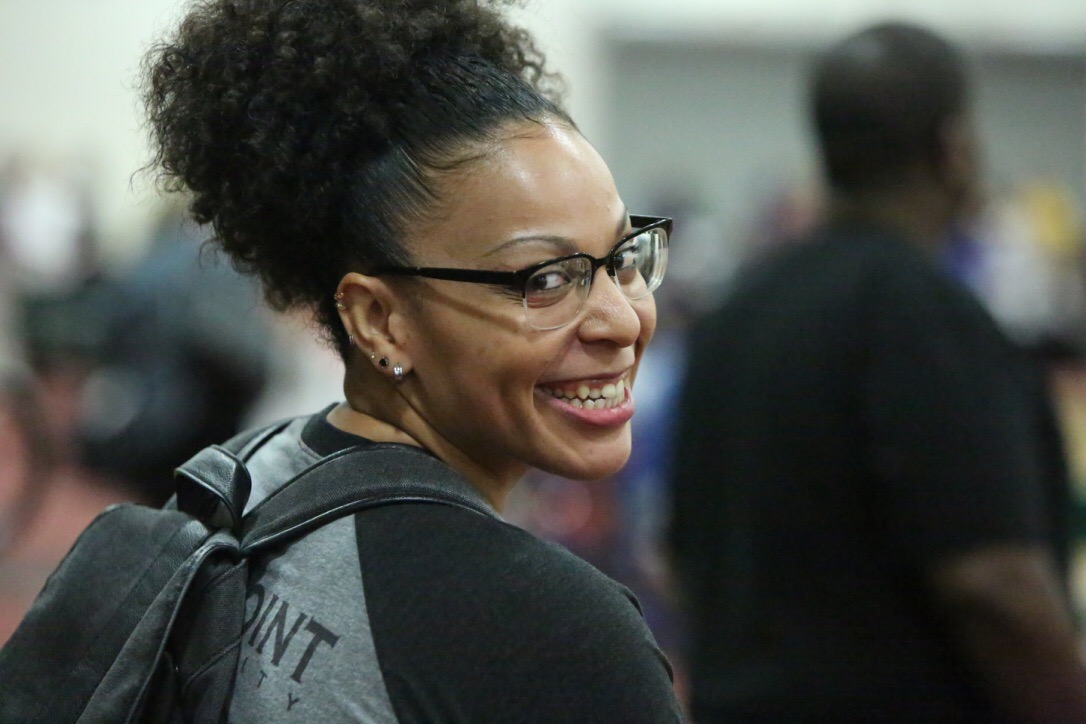"Coach, you good?": the quiet toll of leadership
- hendrixtoycoaching

- May 25, 2025
- 3 min read
It was a question I was often asked. I usually answered half-heartedly because the reality didn't seem as important as the work that needed to get done. My inner circle would reference the bags under my eyes, sluggish walk, or glazed-over stare as evidence that maybe I was overwhelmed.
The real wake-up call should have come when my mother (who usually travels with my older sister) decided to take a solo road trip to one of our away games just to “lay eyes on me.” What she saw was a full-on noise bleed—from the opening tip until well into the second quarter. My third one that week.
After the game, I remember our embrace being longer than normal and my eyes filling up with tears (something that had rarely ever happened).
There were many moments like these that indicated something wasn’t right. As a coach, I did what I was taught to do as an athlete—push through. “Embrace the grind.”
A Different Coaching Approach
I considered myself a progressive coach. We journaled. We practiced breathwork. We talked about gratitude, rest, and self-care. I encouraged slowness and presence.
I taught what I had learned for the issues I knew existed. I equipped the team with tools for emotional resilience and social intelligence.
What I hadn’t realized? I never equipped myself to carry the weight of coaching.
The Hidden Weight of Coaching
It’s rare to talk about what coaching costs: emotional dysregulation, dissociation, and a distorted sense of what it means to meet basic human needs.
Leading young people, managing a staff, and trying to hold your own life together while constantly being watched, judged, and evaluated is emotional labor.
Best case scenario? You win.
But even that only quiets the noise temporarily. It never settles the unrest inside.
The next thing always awaits.
If I’m being honest, I preferred it to be that way. I thought I was built for it. I’d been conditioned to embrace what comes with being “the one in the arena.” The quotes, the speeches, the motivational videos—they all tell you to accept the weight of criticism and the fleeting nature of praise. Knowing what I signed up for felt… safe.
What didn’t feel safe was slowing myself down.
Self-reflection felt strange.
Self-check-ins felt selfish.
Rest didn’t feel competitive enough.
The Shift: Coaching Gen Z
Gen Z gets labeled all kinds of things: soft, entitled, overly sensitive. But what if their values and communication preferences are actually healthier than what we’ve normalized?
What if they are more right than not?
Gen Z expects more than strategy and structure. They want emotionally intelligent, present, and grounded leadership.
They read energy before they listen to words.
They notice when you’re short, distracted, or disheartened.
They crave wholeness.
Here’s the truth:
If we don’t make space to regulate ourselves, we can’t lead them well.
And worse—we’ll be unfulfilled and even more depleted.
A Coaching Culture in Crisis
Coaches are literally dying from health complications—sometimes suddenly, without warning. Others are stepping away from the profession entirely, seeking new careers or retiring from the sidelines. There's a quiet truth within the profession: the coaching lifestyle, as it stands, is not sustainable.
For years, we’ve longed for a version of this work that doesn’t require self-sacrifice as the standard. One where healthy work-life integration isn’t just encouraged—it’s modeled.
Today’s athletes advocate for rest, show up for therapy and want to be seen as more than an athlete. They seek clarity through collaboration and care about efficiency without burnout.
Maybe Gen Z is showing us the way.
Maybe they hold the keys to sustainability.
Being competitive doesn’t have to mean being toxic.
Being elite doesn’t erase human needs.
Athletics doesn’t have to live outside of the real world—because it’s made up of real people.
High school and college sports are changing. And maybe—it’s not all bad.
What Now?
Let’s normalize coaches needing help.
Emotional regulation isn’t just a skill for athletes—it’s leadership work.
If I could go back, I would have built a stronger support system:
A therapist.
A leadership coach.
Close friends outside the game.
Coaches need systems that recognize burnout before it breaks them.
Whether it’s therapy, mentorship, community, or simply rest, we must equip ourselves with the tools to slow down, check in, and move more intentionally.
It takes real courage to look in the mirror and ask:
“Coach, you good?”…and know how to answer truthfully.
Some days, the answer will be “Yes.”
Other days, it might be: “Not yet. But I’m working on it.”
In sports, we live by KYP—Know Your Personnel.
Start by knowing you.
And get the help you need.







D. This is good stuff. I relate every day to all you’re saying here. I too am focusing on where my feet are and what is in front of me. Instead of allowing my mind to constantly think about all the things I need to do in coaching. Like I learned in business, your to do list will always be there when you get to it. Self-care is so important and definitely overlooked by most coaches. As always, thank you for sharing your wisdom from your own experiences. I value them more than you could ever know.